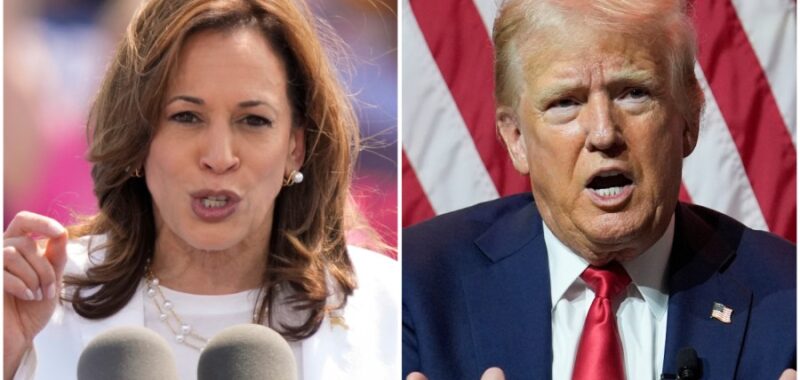
Year in and year out, we Americans consume more than we produce, and in recent years, the numbers have been growing. No, it’s not Santa Claus delivering the extra goods. It’s net imports: what we buy from other countries, minus what we sell to them.
Neither White House candidate has talked about this issue, but both have made promises that, if implemented, would end the import sleigh ride and make us poorer.
In 2023, the deficit was $65.4 billion, about equal to what Amazon sells in three months. In 2022, it was even more, at $78.7 billion. If we go back to 1992, it was just $3.2 billion.
How can we consume so much more than we produce each year? It’s partly explained by two trends that aren’t necessarily healthy: It is our nation’s growing government deficit habit, combined with a low rate of private savings. We as a country — government and citizens together — spend more than we earn each year.
But our ability to consume more than we make is how we manage the disparities. And despite Washington’s excesses, this ability is nonetheless an indicator of continued and enviable American prosperity.
Loading Santa’s sled are people in other parts of the world who are producing more than they consume. They trade with us, taking our IOUs and printed greenbacks and shipping us things we want and need: automobiles, chips, steel, aluminum, chemicals, tractors, toys, medicine and a vast array of other consumer goods.
Then, when our trading partners end up with more of our dollars than they may wish to use to buy U.S. goods, they use them to invest in America. Consider the Chinese-owned Volvo plant in South Carolina that employs some 1,500 workers, or Fuyao Glass America with 1,700 workers in Moraine, Ohio.
A glance at countries of origin on goods found at Target, Walmart, Amazon or anywhere else identifies those that happily trade with us. Chinese shipments have been falling since the U.S.-China trade war began around the time Trump took office. Much of what was shipped from China is now shipped from other Asian countries, especially Vietnam.
Indeed, each time we put the squeeze on China, shipments to the U.S. rise from somewhere else. Short of some drastic change in our own habits, it has to be that way. So long as we consume more than we produce, the goods will have to come from somewhere.
It is folly to assume that those substitute goods can suddenly and automatically come from American producers. In fact, typically there is just a small increase in U.S. production when tariffs are imposed on manufactured goods. We have tight labor markets and an economy that has adjusted to produce what we already do best.
America is expanding as a service, high-tech and construction economy. People elsewhere have become more effective at manufacturing goods than we are. To force a reversal would make us poorer.
Presidential candidate Donald Trump states, in no uncertain terms, that he wants to raise the gangplank and close America’s harbors to foreign goods. This applies not only to goods from China but from other countries as well, with the mention of a blanket 20 percent tariff.
Vice President Kamala Harris is less strident, but she has been a part of an administration that imposed and raised tariffs on Chinese and other goods.
Though they would not put it this way, both candidates want to stop Americans from consuming more than we produce. That might make sense on some level if they were also calling for federal action that will decrease the annual deficit. But both are doing very much the opposite, and higher deficits mean the pressure to import goods and services will increase, not decrease.
Potentially making it even harder to reduce imports are Trump’s repeated promises to begin deporting millions of undocumented immigrants. According to a Peterson Institute analysis, doing so would reduce U.S. employment and GDP growth. When all is said and done, we as a nation will be able to consume less, not more.
Goodbye, Santa Claus! Welcome to harder times, USA.
Bruce Yandle is a distinguished adjunct fellow with the Mercatus Center at George Mason University and dean emeritus of the Clemson University’s College of Business and Behavioral Sciences.

